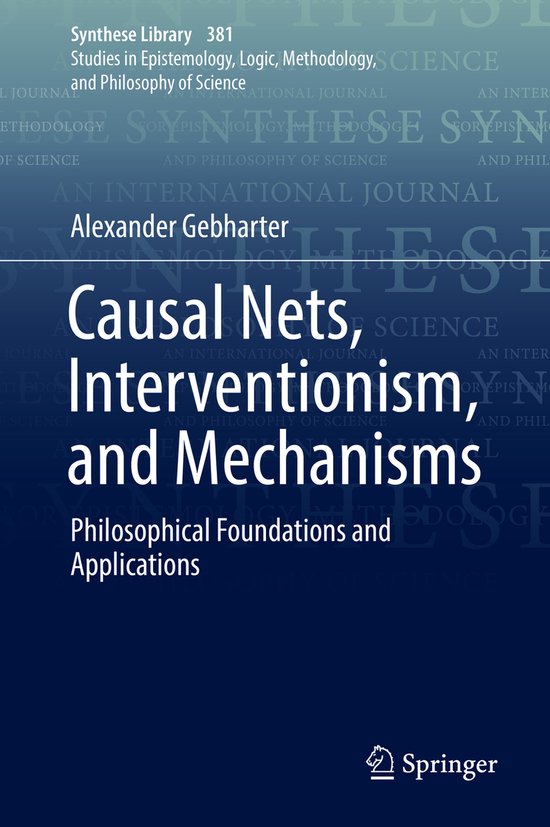De Boeken van Wouter
Causal Nets, Interventionism, and Mechanisms
Causal Nets, Interventionism, and Mechanisms
Impossible de charger la disponibilité du service de retrait
Verzending is beschikbaar op maandag en vrijdag
Meestal verzonden binnen 1–4 dagen na bestelling
4 boeken kopen = 3 betalen
Gratis verzending vanaf €25
Titel: Causal Nets, Interventionism, and Mechanisms
Schrijver: Alexander Gebharter
Bindingswijze: Hardcover
EAN: 9783319499079
Conditie: Goed
Let op: Hieronder staat een algemene beschrijving van hoe wij onze conditietypes classificeren. Als u een nauwkeuriger beeld wilt of specifieke vragen heeft, stuur ons dan een bericht en we kijken het graag voor u na.
Conditie-omschrijvingen:
- Als Nieuw: Nauwelijks gebruikssporen, bijna als nieuw.
- Goed: Kan lichte gebruikssporen vertonen, zoals wat verkleuring of een naam op de schutbladen, maar doorgaans geen onderstrepingen of aantekeningen in de tekst.
- Redelijk: Boek in redelijke staat. Kan gebruikssporen vertonen, zoals verkleuring, leesvouwen in de rug, onderstrepingen, aantekeningen, lichte vervuiling aan de randen, ezelsoren of een kromme rug.
- Nieuw: Boek is nieuw.
Beschrijving:
This monograph looks at causal nets from a philosophical point of view. The author shows that one can build a general philosophical theory of causation on the basis of the causal nets framework that can be fruitfully used to shed new light on philosophical issues.
This monograph looks at causal nets from a philosophical point of view. The author shows that one can build a general philosophical theory of causation on the basis of the causal nets framework that can be fruitfully used to shed new light on philosophical issues. Coverage includes both a theoretical as well as application-oriented approach to the subject.
The author first counters David Hume’s challenge about whether causation is something ontologically real. The idea behind this is that good metaphysical concepts should behave analogously to good theoretical concepts in scientific theories. In the process, the author offers support for the theory of causal nets as indeed being a correct theory of causation.
Next, the book offers an application-oriented approach to the subject. The author shows that causal nets can investigate philosophical issues related to causation. He does this by means of two exemplary applications. The first consists of an evaluation of Jim Woodward’s interventionist theory of causation. The second offers a contribution to the new mechanist debate.Introductory chapters outline all the formal basics required. This helps make the book useful for those who are not familiar with causal nets, but interested in causation or in tools for the investigation of philosophical issues related to causation.
This monograph looks at causal nets from a philosophical point of view. The author shows that one can build a general philosophical theory of causation on the basis of the causal nets framework that can be fruitfully used to shed new light on philosophical issues. Coverage includes both a theoretical as well as application-oriented approach to the subject.
The author first counters David Hume’s challenge about whether causation is something ontologically real. The idea behind this is that good metaphysical concepts should behave analogously to good theoretical concepts in scientific theories. In the process, the author offers support for the theory of causal nets as indeed being a correct theory of causation.
Next, the book offers an application-oriented approach to the subject. The author shows that causal nets can investigate philosophical issues related to causation. He does this by means of two exemplary applications. The first consists of an evaluation of Jim Woodward’s interventionist theory of causation. The second offers a contribution to the new mechanist debate.
Introductory chapters outline all the formal basics required. This helps make the book useful for those who are not familiar with causal nets, but interested in causation or in tools for the investigation of philosophical issues related to causation.
Share

